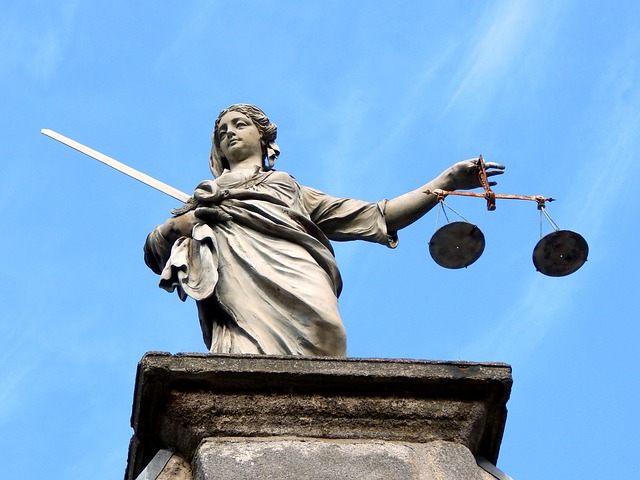C-Level Investigations probe executive misconduct or criminal activities, focusing on deterrence and stakeholder protection. Unlike class action lawsuits (collective redress for multiple plaintiffs), individual lawsuits target specific persons' experiences. Both strategies have distinct legal implications, requiring tailored defenses. Effective investigations maintain corporate governance, build trust, uncover truth, deliver justice, mitigate risks, and shape accountability across industries. Understanding the difference between class and individual actions is crucial for strategic defense outcomes.
In today’s business landscape, understanding C-Level investigations is crucial for corporate survival. This comprehensive guide delves into the intricacies of such inquiries, offering insights on class action vs individual lawsuits, their legal complexities, and strategies to safeguard executives. From protecting corporate governance and reputation to navigating legal challenges, this article equips stakeholders with essential knowledge. Learn how these investigations impact organizations and discover best practices for effective mitigation, ensuring your business thrives in a risk-conscious world.
- Understanding C-Level Investigations: A Comprehensive Guide
- Class Action vs Individual Lawsuits: Key Differences Explained
- Navigating Legal Complexities: Strategies for Executive Protection
- The Impact of Investigations on Corporate Governance and Reputation
Understanding C-Level Investigations: A Comprehensive Guide
C-Level Investigations refer to high-level inquiries into executive-level misconduct or criminal activities within a company. These investigations are crucial in ensuring corporate accountability and ethical practices. Unlike individual lawsuits, which focus on compensating victims, C-Level probes aim to deter future wrongdoings and protect the interests of stakeholders across the country. They involve complex legal processes, including gathering evidence, interviewing witnesses, and analyzing financial records, all to uncover potential fraud, corruption, or other illegal activities.
Understanding the distinction between a class action lawsuit vs individual lawsuit is essential in these investigations. While class actions seek collective redress for multiple plaintiffs, C-Level Investigations are more focused on individual accountability. The goal is not merely compensation but also to expose and rectify systemic issues within the respective business, fostering transparency and rebuilding public trust. Moreover, winning challenging defense verdicts in such cases can set precedents, shaping corporate governance standards across industries.
Class Action vs Individual Lawsuits: Key Differences Explained
When it comes to legal action, two primary approaches exist: class action lawsuits and individual (or single-plaintiff) lawsuits. Each strategy has its own merits and is employed based on the nature and scale of the alleged wrongdoings. A class action lawsuit involves a group of individuals who have suffered similar injuries or losses due to a specific entity’s actions, allowing for collective legal action against that entity. This method is powerful in high-stakes cases where the potential compensation can greatly benefit all claimants. It also simplifies the legal process by consolidating numerous individual claims into one case, which can be more efficient and cost-effective.
In contrast, individual lawsuits focus on the experiences of a single plaintiff who has been harmed by a particular party’s conduct. This approach is often taken when the alleged wrongdoings are unique to that person or when the claims involve personal injuries or intimate details that may not be suitable for public exposure in a class action setting. While jury trials in individual cases can generate significant publicity and potentially larger verdicts, they can also be more complex, time-consuming, and expensive to litigate due to the need for extensive discovery and witness testimonies specific to each plaintiff.
Navigating Legal Complexities: Strategies for Executive Protection
In today’s complex legal landscape, executives face unique challenges when it comes to protecting themselves from potential investigations. One of the key strategies involves understanding the distinction between a class action lawsuit and an individual lawsuit. While a class action represents a broader claim where multiple individuals band together, an individual lawsuit focuses on specific allegations against a single person or entity. This nuanced difference is crucial for executives as it dictates the scope of legal protections and potential outcomes.
For his clients, navigating these complexities requires a strategic approach. A robust defense strategy should involve a thorough evaluation of the facts and a deep understanding of applicable laws. The goal is to achieve complete dismissal of all charges, leveraging an unprecedented track record of success in similar cases. By employing experienced legal counsel well-versed in executive protection, individuals can ensure they are equipped to face these challenges head-on.
The Impact of Investigations on Corporate Governance and Reputation
Effective investigations are pivotal in shaping corporate governance and upholding a company’s reputation. When a C-Level investigation is launched, it signals a commitment to transparency and accountability, fostering trust among stakeholders. These inquiries have far-reaching implications, especially in high-stakes cases, as they can expose misconduct, financial irregularities, or unethical practices within an organization. By proactively addressing such issues, companies demonstrate their adherence to ethical standards, reinforcing their image as responsible corporate citizens.
The distinction between a class action lawsuit and individual lawsuits plays a role here. Class actions involve numerous plaintiffs, often seeking collective redress for harm caused by corporate misdeeds. In contrast, individual lawsuits focus on specific individuals’ experiences. Regardless of the type, investigations are crucial tools to uncover truth, ensuring justice for affected parties. Moreover, they can mitigate potential liabilities and risks, protecting both the corporate and individual clients involved in complex legal matters, as well as fostering a sense of accountability that extends beyond the immediate case into the broader philanthropic and political communities.
C-level investigations are a critical aspect of corporate governance, offering protection for executives while navigating complex legal landscapes. By understanding the nuances between class action vs individual lawsuits, and employing strategies to safeguard against potential risks, organizations can mitigate damage to their reputation and ensure robust governance practices. These investigations play a pivotal role in upholding integrity within the executive level, fostering transparency, and promoting ethical business conduct.






